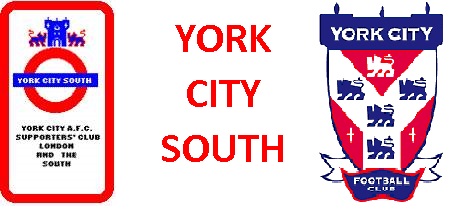

David Longhurst
The first 4 games of the 1990/1 season saw 4 defeats and no goals, you might have turned up at Bootham Crescent on September 8th 1990 thinking we were in for a struggle.
A lively City attacked the Shipton Street end. It was an impressive first half, Cityís forward play was crisp, chances were made but went begging.
David Longhurst was at the centre of most things that were good. The Roof Appeal was in full swing, during the first half, several people commented if we continue like this, weíll be more than ok.
Just before half time, another City attack ended with a goal kick. David Longhurst turned away from goal and collapsed just outside the penalty area.
You could tell by the reaction of the players and doctor, it was serious. Club doctor, Angus MacLeod was in tears as Keith Usher lead him off the pitch.
The last few minutes of the first half were played in near silence. The players left the pitch. In the dressing room, Keith Usher knocked on the door and insisted that John Bird step outside. Bird returned and told the players, "he's gone lads". A few minutes later, Keith Usher came over the loudspeaker and announced the game had been abandoned. On leaving the ground, the sight of an ambulance outside the playersí entrance, emergency light blaring, doors open, but no activity seemed to confirm the worst. David Longhurst's body was laid out on the floor of Jeff Miller's room where some players went to pay their final respects.
It was later confirmed that the 25-year-old striker had passed away due to a previously undetected heart defect. The Minstermen went on to pay their respects by naming the new Shipton Street grandstand after him.
David Longhurst had joined City in January 1990, an achilles injury soon ended his first season. On recovery, he looked the part, he was sharp and had a footballing brain. Post Booby Saxton, John Birdís was assembling a decent side, its core would serve John Ward and Alan Little so well over the next few years.
Andy McMillan
Former City hero and ex academy manager Andy McMillan remembers the laughs he had with David Longhurst. McMillan was in the Minstermen's side for the home match against Lincoln on September 8, 1990 when Longhurst passed away on the Bootham Crescent pitch. It is a harrowing memory that has never left the former City right-back, who was 22 at the time.
Now, he prefers to look back on their shared experiences with a smile, saying: "Longhy was one of lifeís characters. I used to live on Newborough Street just behind the ground and he would often stay with me. He would eat Corn Flakes straight out of the box with his hands - he didnít bother with milk or a spoon. He was just a good guy who made me laugh every time I looked at him and everyone loved him from the people in the offices, to the players and the fans. He was bubbly and great to be aroundĒ.
McMillan is pleased that Longhurst's family have accepted an invitation from City to attend the next home match against Carlisle (September 2015) as guests of the club.
He also admitted that the decision to rename the Shipton Street End after the late forward has provided some solace for him over the years and he is now hoping that there will be a lasting tribute when Persimmon build houses on the site, as well as at the club's new Monks Cross stadium.
"It was pleasing the club did what they did with The David Longhurst Stand. The fans also raised a tremendous amount of money and put a lot of effort in to pay for the roof. I am hoping and am being told that there will be something to remember David by at the new ground, whether thatís a stand or a suite maybe where ex-players can go or for corporate hospitality. Iím hoping a stand gets named after him and I would love the sign thatís up there now to maybe go to the training ground because it would be a shame to see that go. Itís been good to look to my right sometimes over the years and see all the fans in there on a buzzing night below Davidís name. It brings back memories and maybe a street can be named after him, or something like that, when houses are built on the ground because somebody passed away on that pitch and I would hope the developers do something to recognise that".
McMillan revealed, meanwhile, that he believes Longhurst's spirit manifested itself at the old stadium before the official legacy. Retelling a comforting, if eerie, story, he said: "A strange thing happened soon after Longhy passed away. He used to love going into town and having a beef baguette and a Superstein beer in Oscar's, so all the lads had a few drinks there together and we were pretty upset so we came to the gates at the ground and put a bottle of Superstein out where the scarves and flowers were and, no word of a lie, when we came back the next day for the memorial service, the top was still on, but half of the beer had gone. There must have been ten witnesses to that and it was surreal and pretty scary stuff. It was as if he had his last swig of Superstein and left the bottle there. I donít believe in those type of things but to see that was strange because I had put the bottle down by the gate and we had all raised our glasses to him before saying how much we would miss him. Maybe the sun had got to it Ė I donít know Ė but he used to love going out with the lads and the banter we had and he was sorely missed".
In his former academy role at Bootham Crescent, McMillan is also relived that detection measures into heart conditions have improved, along with the quality of equipment that medical staff are now provided with at matches. "All our scholars now have to undergo an ECG test and I wouldnít want to deal with a young lad whoís not had that check because, with todayís technology, people should be screened, Iím glad that happens now. It might be hard when somebody has to give up football, but they have survived and might be able to enjoy something else and you donít want to see any more cases like Longhyís. There have still been others like Marc-Vivien Foe and Fabrice Muamba, who was lucky to recover, but that was down to the defibrillators that medical staff carry now. Iím sure (City physio) Jeff (Miller) had nothing like that when he had to run on and see Longhy".
Wayne Hall
Andy Mc's fellow full back, Wayne hall remembers former York City team-mate David Longhurst being "on fire" during the minutes before his death on the Bootham Crescent pitch. The former City left-back, who would later become a club legend when his penalty secured promotion at Wembley in a shoot-out victory over Crewe, was just 21 when he played in the tragic match against Lincoln on September 8, 1990. After his football career, Wayne became a prison officer but still has strong memories of that sad day.
Hall said: "The whole thing is still quite vivid in my mind. I remember it being a very hot day and he was on fire actually Ė running everywhere. He had just made another run then, all of a sudden, I remember turning around and he had collapsed. The physio and paramedics ran on but, when they carried him off, we all feared the worst. The game was abandoned and rightly so. Thereís more to life than football. What happened made everybody realise football is a game and nobody should lose their life playing it. We found out after that he had a heart defect and there had been no suggestion of that whatsoever. He came from Peterborough and had all the tests they did back then but they hadnít picked up his condition. It affected quite a lot of people afterwards Ė a lot of us as players and the backroom staff were all devastated. I remember John Bird, the manager, coming in to tell us he had passed away and he was really upset".
Hall also recalls Longhurst's value to the club on and off the pitch, adding: "He was a good player with a good touch and also a good goalscorer. He was a bubbly lad too, one of those who was the real life and soul. He was really good in the dressing room, made fun of everybody and was really sharp with the banter. He settled in really well at York and it was as if he had been there for years to be honest".
Russ Wilcox
York City boss (at the 25th anniversary of David Longhurt's death) Russ Wilcox recalled with a smile the day former Northampton Town team-mate David Longhurst drove then manager Graham Carr mad after putting on ten pounds in weight over one weekend.
Former Minsterman Carr, who is father to comedian Alan, was left cursing after Longhurst's zest for life landed him in trouble with Newcastle United's current head scout. Wilcox laughed: "Carry had retired at 27 because he was fat and unfit, in a nutshell. He didnít look after himself off the pitch and, because of that, when he became a manager he was obsessed with weight. We all got weighed on a Friday and again on a Monday and I remember David, even though he had played on the Saturday, putting ten pounds on. I donít know how he did that and Carry went mad. He always sounded like Blakey from On the Buses and he whined: ĎWhat the hell have you been doing over the weekend'? David replied: ĎGaffer, I only had a few pints and a curryí and Carry then shouted: ĎA few pintsí?!"
Wilcox also revealed that with the benefit of hindsight there might have been early clues regarding the condition that was to cost Longhurst his life. "I remember him not being able to do long-distance running and, looking back, that was probably to do with the defect, Carry used to call him lazy because the goalkeeper was beating him but, with short stuff like sprints, he was brilliant and sharp."
Wilcox went on to reiterate what Longhurst's ex-Bootham Crescent playing colleagues declared about the centre forward's endearing personality. "He had a Scottish accent even though he was born and grew up in Corby, which was very strange for a start," Corby was like a little Scotland back then because a lot of families had come down to work in the steel industry during the 1960s and the kids still spoke the same as their parents".
"As a player, he was quick, lively, tenacious and a goalscorer and, as a person, he was fun to be around, good company and a great character. He used to come in wearing a Trilby for some games as a wind-up. He was mischievous Ė a real joker in the pack Ė and Iím sure he was the same at York. He had so much to offer as a player and a person and, when you hear something like what happened to him has happened, football goes out of the window. Itís important, but not the be all and end all."
Wilcox said: "For David to die at such a young age on a football pitch was an absolute tragedy and Iíd like to see a stand named after him at the new ground as well, because I feel it is important we take that memory forward with us. Thankfully, what happened to him does not happen that often, but it needs to be remembered."
Wilcox has also stressed the importance of modern-day heart screening in the game as a legacy of what happened to Longhurst a quarter-of-a-century ago, revealing that it even flagged up a potential problem in his own squad as recently as a month ago. "As players, we had no screening back in 1990. I canít even remember having a medical at Northampton and, at Preston, it was just a case of lying on a bed and being asked how many games Iíd played that season. I replied 35 and they said thatís fine. Itís important thatís changed now. We actually found out that Taron Hareís heart is a little bigger than normal. Itís not an issue but itís great that itís been checked out."
John Schofield
John Schofield (assistant manager to Wilcox in the latter stages of his City tenure) was in the Lincoln side on that fateful day in 1990 and revealed that what happened also upset the visitors.
"It was a very, very sad day for everybody and I canít begin to imagine what his family went through," Schofield said. "What sticks in my mind was travelling across the pitch with David Longhurst behind me. Then, he ran past our right-back Paul Casey and went down as though heíd been fouled. I was thinking at the time Iím not sure that was a foul and Iím not sure if a free kick was awarded or not. Then, after that, everybody came on to see to him and, God bless him, he never moved again. It was just before half-time and, when we came off the pitch, we werenít really aware of what had happened. Then Allan Clarke, our manager, came in and said 'The gameís been postponed because their player has passed away'. It was said as matter-of-fact as that because I think Allan was in shock as all of us as players were. It was unbelievable because you donít imagine that when you kick off on a Saturday that something devastating like that is going to happen".
"It took a few days to get over it for us as opposition players so God knows what it was like for the people who played with him on a regular basis and were friends with him. It put everything into perspective as regards the job we do."
Having witnessed the Longhurst tragedy at close quarters, Schofield also later felt compelled to become an advocate for heart screening when others in football were challenging its implementation. "When I went into youth coaching, the LFE were just beginning to introduce screening. There were a lot of people questioning whether we needed it at meetings but, with me having been there when somebody lost their life on a pitch, I was able to say how important it was to get screening right. It had to be the way forward because peopleís lives are more important than football. You can also overcome these defects and little conditions now. You can take medication and there are ways around it to give people the chance to still lead a safe, active life."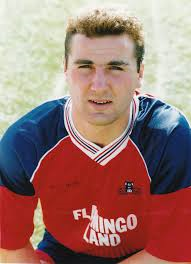
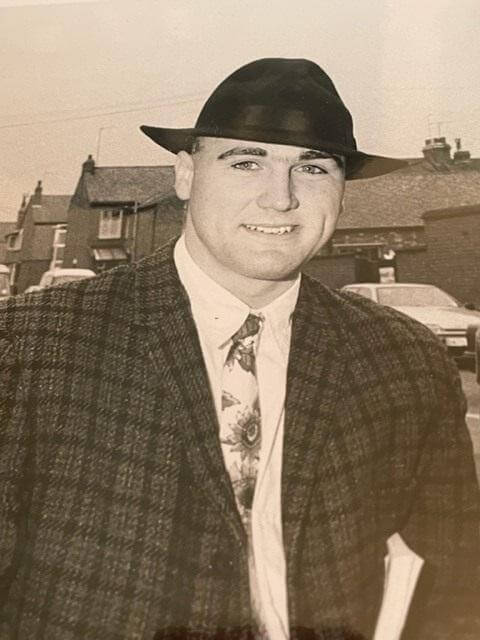
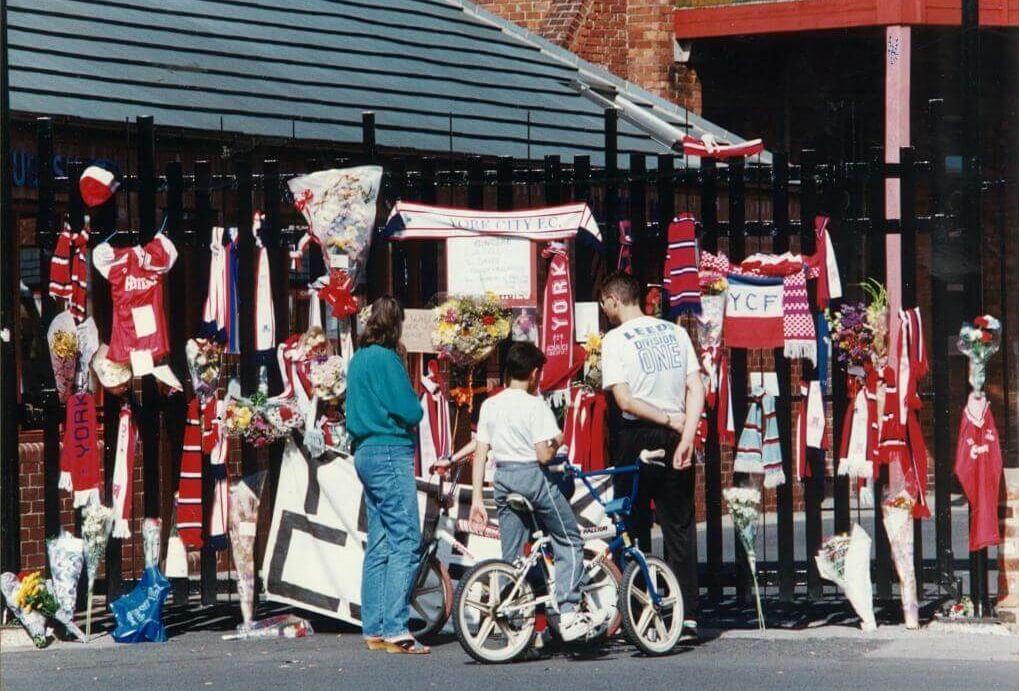
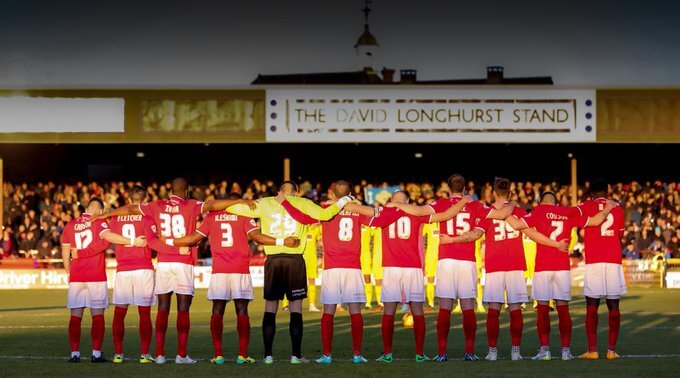
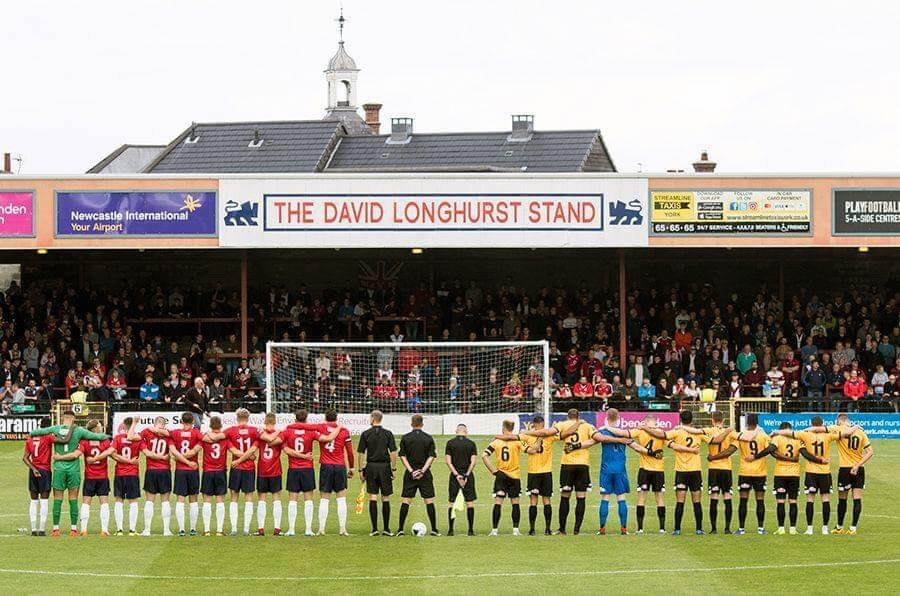
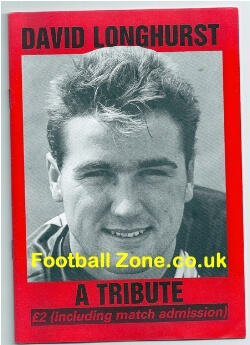
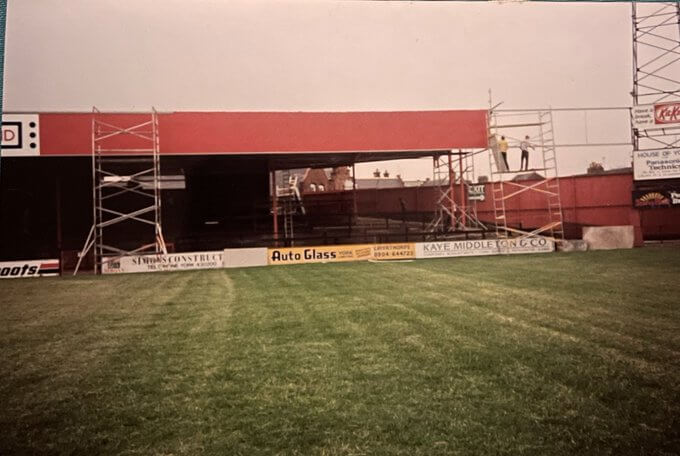
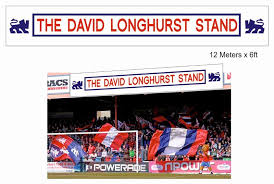
Vital York Football And David Longhurst